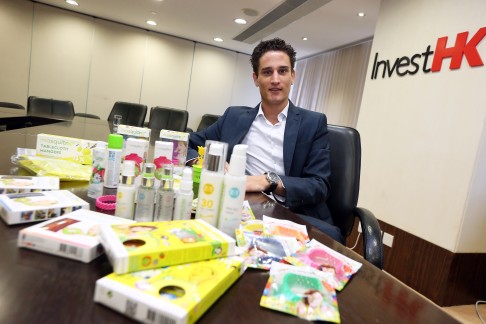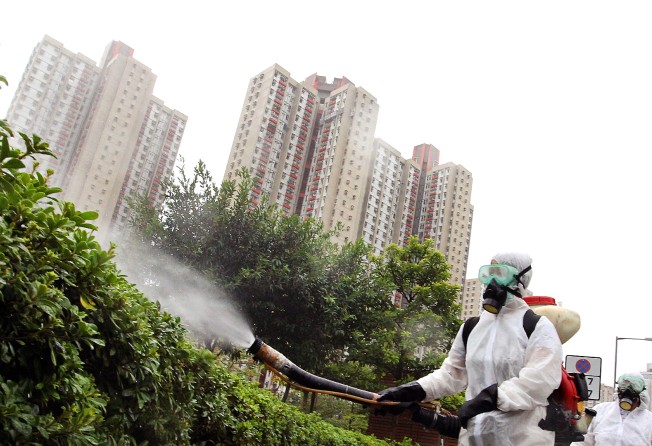
Dutch insect repellent innovator Mosquitno targets Hong Kong as dengue fever cases rise

A Dutch company says it has invented an insect repellent using nanotechnology which can keep clothes and homes mosquito-free for up to three months.
Mosquitno has been invited by a government body to begin trading in Hong Kong as the number of cases reported in the city of the deadly mosquito-borne dengue fever rises.
The new repellent does not include the active ingredient used in many insect repellents, DEET, which has question marks surrounding its safety.
Figures from the Department of Health show the number of dengue fever cases reported rose 8 per cent last year, to 112. There were 34 cases in the first five months of this year, 36 per cent more than in the same period last year. Mosquitoes are most active in the summer months.
Erwin Wijnen, director of the company's brand development and global travel retailing, said the new repellent combined nanotechnology with a safer active ingredient - IR3535 - to create a spray that once applied remains effective for up to three months.
The repellent is also available as a fabric softener and a bracelet.
"I think it makes sense to put the repellent in the washing machine to make your clothes insect-repellent. So when you bring your children to school, their uniforms will be insect-repellent and odourless," he said.
The Consumer Council has previously warned that IR3535-based mosquito repellents can break down plastic materials and certain synthetic fibres, but Wijnen said the ingredient combined with nanotechnology is safe and there was no possibility it would damage clothes.
Professor Kevin Leung Wing-por, head of Chinese University's department of chemistry, said he believed vigorous testing had been carried out on IR3535 after combining it with nanotechnology to ensure its safety.
"The company would not take the risk of creating a safety problem," Leung said.
Wijnen said he saw great potential for the product in Hong Kong and Asia, as the number of cases of dengue fever increases.
The council warns that some users may show symptoms of an allergic reaction to the repellent, such as a rash, which is also a relatively common side-effect with DEET-based repellents. In the worst cases, excessive exposure to it could lead to seizures.
Wijnen said consumers would need to spray clothes, bed linen, curtains and other fabrics again after they are washed for the repellent to stay effective on these materials.
InvestHK, the government body tasked with attracting foreign businesses, said it contacted Mosquitno last year about setting up an office in Hong Kong.